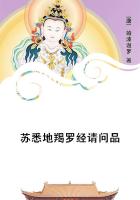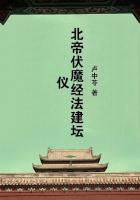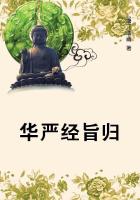As I rode along near the coast I kept a very sharp lookout in the lanes and woods, hoping I might, at this time of the year, have discovered some of the summer short-winged birds of passage crowding towards the coast in order for their departure: but it was very extraordinary that I never saw a red-start, white-throat, black-cap, uncrested wren, fly-catcher, etc. And I remember to have made the same remark in former years, as I usually come to this place annually about this time. The birds most common along the coast at present are the stone-chatters, whin-chats, buntings, linnets, some few wheatears, titlarks, etc. Swallows and house-martins abound yet, induced to prolong their stay by this soft, still, dry season.
A land-tortoise, which has been kept for thirty years in a little walled court belonging to the house where I now am visiting, retires under ground about the middle of November, and comes forth again about the middle of April. When it first appears in the spring it discovers very little inclination towards food; but in the height of summer grows voracious: and then as the summer declines its appetite declines; so that for the last six weeks in autumn it hardly eats at all. Milky plants, such as lettuces, dandelions, sow-thistles, are its favourite dish. In a neighbouring village one was kept till by tradition it was supposed to be an hundred years old. An instance of vast longevity in such a poor reptile!
Letter VIII
To The Honourable Daines BarringtonSelborne, Dec. 20, 1770.
Dear Sir,The birds that I took for aberdavines were reed-sparrows (passeres torquati).
There are doubtless many home internal migrations within this kingdom that want to be better understood: witness those vast flocks of hen chaffinches that appear with us in the winter without hardly any cocks among them. Now was there a due proportion of each ***, it should seem very improbable that any one district should produce such numbers of these little birds; and much more when only half of the species appears: therefore we may conclude that the fringillae caelebes, for some good purposes, have a peculiar migration of their own in which the ***es part. Nor should it seem so wonderful that the intercourse of ***es in this species of birds should be interrupted in winter; since in many animals, and particularly in bucks and does, the ***es herd separately, except at the season when commerce is necessary for the continuance of the breed. For this matter of the chaffinches see Fauna Suecica, p. 85, and Systema Naturae, p. 318. I see every winter vast flights of hen chaffinches, but none of cocks.
Your method of accounting for the periodical motions of the British singing birds, or birds of flight, is a very probable one;since the matter of food is a great regulator of the actions and proceedings of the brute creation: there is but one that can be set in competition with it, and that is love. But I cannot quite acquiesce with you in one circumstance when you advance that, 'when they have thus feasted, they again separate into small parties of five or six, and get the best fare they can within a certain district, having no inducement to go in quest of fresh-turned earth.' Now if you mean that the business of congregating is quite at an end from the conclusion of wheat-sowing to the season of barley and oats, it is not the case with us; for larks and chaffinches, and particularly linnets, flock and congregate as much in the very dead of winter as when the husbandman is busy with his ploughs and harrows.
Sure there can be no doubt but that woodcocks and fieldfares leave us in the spring, in order to cross the seas, and to retire to some districts more suitable to the purpose of breeding. That the former pair before they retire, and that the hens are forward with egg, Imyself, when I was a sportsman, have often experienced. It cannot indeed be denied but that now and then we hear of a woodcock's nest, or young birds, discovered in some part or other of this island:
but then they are always mentioned as rarities, and somewhat out of the common course of things: but as to redwings and fieldfares, no sportsman or naturalist has ever yet, that I could hear, pretended to have found the nest or young of those species in any part of these kingdoms. And I the more admire at this instance as extraordinary, since, to all appearance, the same food in summer as well as in winter might support them here which maintains their congeners, the blackbirds and thrushes, did they choose to stay the summer through. From hence it appears that it is not food alone which determines some species of birds with regard to their stay or departure. Fieldfares and redwings disappear sooner or later according as the warm weather comes on earlier or later. For I well remember, after that dreadful winter of 1739-40, that cold north-east winds continued to blow on through April and May, and that these kinds of birds (what few remained of them) did not depart as usual, but were seen lingering about till the beginning of June.
The best authority that we can have for the nidification of the birds above-mentioned in any district, is the testimony of faunists that have written professedly the natural history of particular countries.
Now, as to the fieldfare, Linnaeus, in his Fauna Suecica, says of it that 'maximis in arboribus nidificat'; and of the redwing he says, in the same place, that 'nidificat in mediis arbusculis, sive sepibus:
ova *** caeruleo-viridia maculis nigris variis.' Hence we may be assured that fieldfares and redwings breed in Sweden. Scopoli says, in his Annus Primus, of the woodcock, that 'nupta ad nos venit circa aequinoctium vernale'; meaning in Tirol, of which he is a native. And afterwards he adds 'nidificat in paludibus alpinis: ova ponit, 3-5.' It does not appear from Kramer that woodcocks breed at all in Austria: but he says 'Avis haec septentrionalium provinciarum aestivo tempore incola est; ubi plerumque nidificat.















